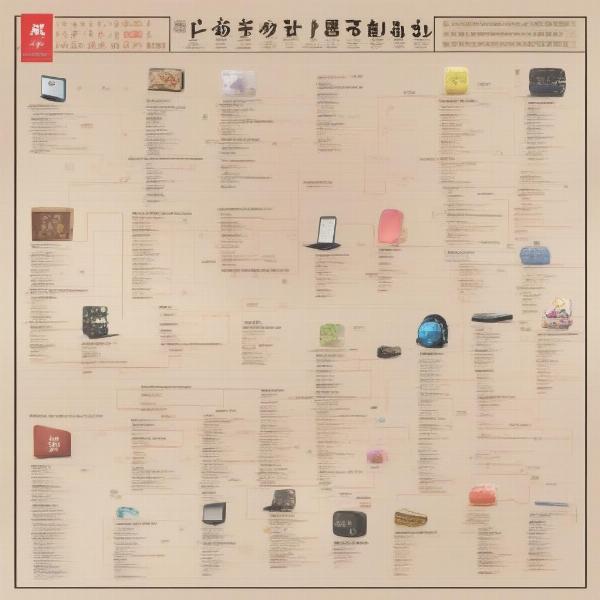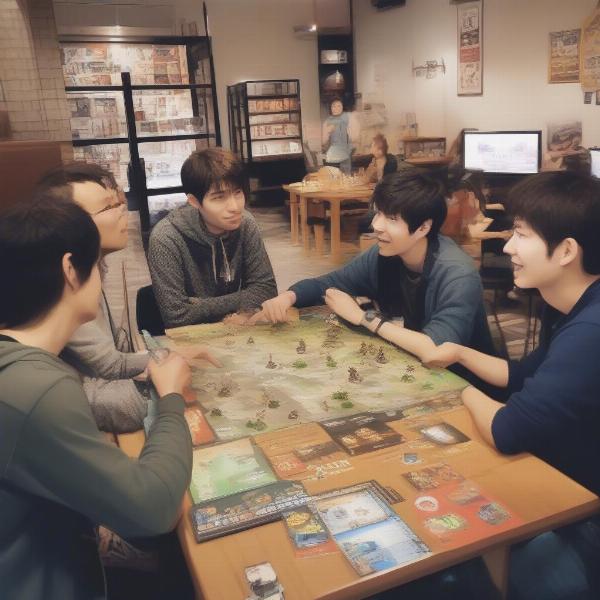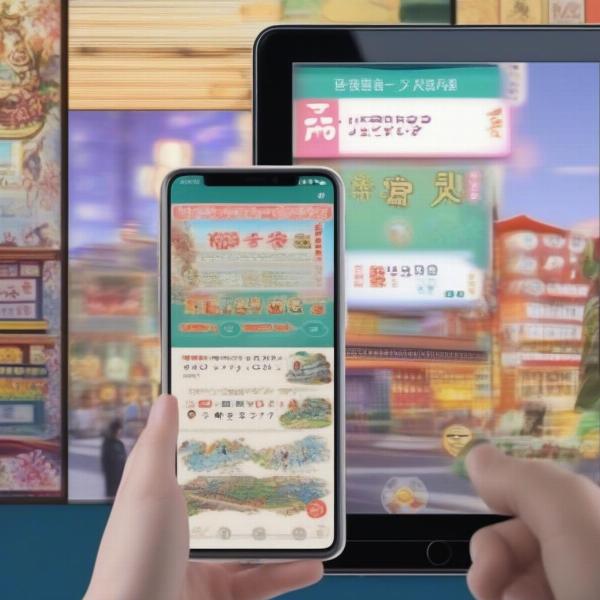So, you’re curious about how to say “game” in Japanese? Whether you’re a seasoned gamer, an anime aficionado, or just dipping your toes into Japanese culture, knowing how to talk about games is a great starting point. It’s more nuanced than you might think!
Many people start with “ge-mu,” thinking it’s a direct translation. While understandable, it’s not quite the whole picture. “Ge-mu” (ゲーム) is indeed the Japanese pronunciation of the English word “game,” but using it exclusively can sound a bit unnatural or even childish in certain contexts. Japanese, like any language, has its subtleties, and understanding them opens a whole new level of communication.
Different Ways to Say “Game” in Japanese
Depending on the type of game you’re talking about, different words might be more appropriate. Let’s break down some common terms:
-
ゲーム (gēmu): This is the most common and versatile term, borrowed directly from English. It covers a broad spectrum of games, from video games and board games to sports and even children’s play. Think of it as the all-encompassing “game” word.
-
試合 (shiai): This word refers to a match or competition, often used for sports games like baseball or soccer. It emphasizes the competitive aspect of the game. You wouldn’t use this term for a single-player video game.
-
競技 (kyōgi): Similar to shiai, kyōgi refers to a competition, but it carries a more formal and often professional connotation. Think of Olympic events or other organized sports.
-
遊び (asobi): This translates to “play” and is often used for children’s games or casual, non-competitive activities. It emphasizes the enjoyment and recreational aspect rather than the competitive element.
-
遊戯 (yūgi): This is a more formal and literary term for “play” or “game,” often used in contexts like literature or legal documents. While less common in everyday conversation, it’s good to be aware of.
Beyond the Basics: Specific Game Genres in Japanese
Now that we’ve covered the general terms, let’s dive into some specific game genres and how they are referred to in Japanese. This will help you sound more like a native speaker and less like you’re just using a direct translation.
-
テレビゲーム (terebi gēmu): This translates to “television game” and refers specifically to video games played on consoles or computers.
-
ロールプレイングゲーム (rōru pureingu gēmu): A mouthful, right? This is how you say “role-playing game,” often shortened to RPG.
-
アクションゲーム (akushon gēmu): This refers to “action games” and covers a wide range of fast-paced, skill-based games.
-
戦略ゲーム (senryaku gēmu): This means “strategy game” and is used for games that require planning and tactical thinking.
 Japanese Game Vocabulary Chart
Japanese Game Vocabulary Chart
Why Knowing the Right Term Matters
Using the correct Japanese word for “game” shows a deeper understanding and respect for the language and culture. It can enhance your communication with Japanese gamers and help you avoid misunderstandings.
Imagine trying to discuss your favorite senryaku gēmu (strategy game) and only using the generic gēmu. While you might be understood, using the more specific term shows that you know what you’re talking about. It’s like the difference between calling a game “fun” and describing its specific mechanics and why you enjoy them.
 Japanese Gamer Discussing Strategy Games
Japanese Gamer Discussing Strategy Games
Using “Game” in Different Contexts
Knowing the different words for “game” is just the beginning. Understanding how to use them in sentences and conversations is key to fluent communication. Here are some examples:
-
“What’s your favorite game?” — 好きなゲームは何ですか?(Sukina gēmu wa nan desu ka?)
-
“I love playing fighting games.” — 格闘ゲームが好きです。(Kakutō gēmu ga suki desu.)
By using the correct terminology, you can express your thoughts and opinions about games more accurately and connect with fellow gamers on a deeper level.
Level Up Your Japanese!
Learning a new language is a journey, and even small steps like learning the different ways to say “game” can make a big difference. Don’t be afraid to experiment and practice! Similar to mastering what is oki in fighting games, learning a new language requires practice and dedication.
 Learning Japanese Through Games
Learning Japanese Through Games
Expanding Your Gaming Vocabulary
Besides knowing how to say “game” in Japanese, expanding your gaming vocabulary can be incredibly useful, especially if you’re interested in Japanese games or gaming culture. Here are a few more essential terms:
-
キャラクター (kyarakutā): Character
-
レベル (reberu): Level
-
アイテム (aitemu): Item
-
ボス (bosu): Boss
These terms will help you navigate the world of Japanese gaming with more confidence. This is somewhat analogous to understanding is p3 reload on game pass, where knowing the right platforms and services broadens your gaming options.
Conclusion
So, how do you say “game” in Japanese? The answer, as we’ve seen, depends on the context. From the general gēmu to more specific terms like shiai and kyōgi, understanding the nuances allows for more precise and natural communication. Learning these different terms will not only improve your Japanese language skills but also deepen your appreciation for Japanese gaming culture. Now go forth and level up your Japanese!
FAQ
- What is the most common way to say “game” in Japanese? The most common way to say “game” is ゲーム (gēmu).
- How do you say “video game” in Japanese? テレビゲーム (terebi gēmu) means “video game.”
- Is it okay to just say “ge-mu” all the time? While understood, using more specific terms is generally preferred for natural-sounding conversation.
- What word should I use for a sports match? 試合 (shiai) is commonly used for sports matches.
- What does asobi (遊び) mean? Asobi translates to “play” and is often used for children’s games or casual activities.
- How do I say “role-playing game” in Japanese? ロールプレイングゲーム (rōru pureingu gēmu), often shortened to RPG.
- What are some other useful gaming terms in Japanese? Useful terms include キャラクター (kyarakutā – character), レベル (reberu – level), アイテム (aitemu – item), and ボス (bosu – boss).

